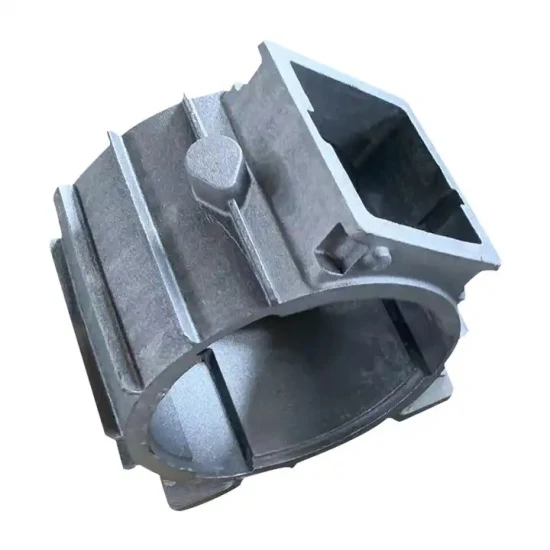See This Report about Alcast Company
See This Report about Alcast Company
Blog Article
3 Simple Techniques For Alcast Company
Table of ContentsRumored Buzz on Alcast CompanySome Ideas on Alcast Company You Should KnowAlcast Company Things To Know Before You BuyGetting The Alcast Company To WorkFacts About Alcast Company RevealedGetting My Alcast Company To Work
The subtle difference depends on the chemical content. Chemical Comparison of Cast Light weight aluminum Alloys Silicon advertises castability by minimizing the alloy's melting temperature level and boosting fluidness throughout spreading. It plays a crucial role in allowing elaborate molds to be filled up precisely. Furthermore, silicon adds to the alloy's strength and wear resistance, making it important in applications where sturdiness is crucial, such as automotive components and engine elements.It also enhances the machinability of the alloy, making it simpler to refine into finished items. In this way, iron adds to the overall workability of light weight aluminum alloys.
Manganese adds to the toughness of aluminum alloys and boosts workability (Foundry). It is typically used in functioned aluminum items like sheets, extrusions, and accounts. The presence of manganese help in the alloy's formability and resistance to fracturing during manufacture processes. Magnesium is a lightweight component that offers stamina and influence resistance to aluminum alloys.
The Basic Principles Of Alcast Company
It allows the production of light-weight parts with excellent mechanical residential or commercial properties. Zinc improves the castability of light weight aluminum alloys and assists manage the solidification procedure throughout spreading. It improves the alloy's stamina and firmness. It is typically found in applications where complex shapes and fine information are essential, such as attractive spreadings and specific automobile parts.

The main thermal conductivity, tensile strength, yield strength, and prolongation differ. Amongst the above alloys, A356 has the greatest thermal conductivity, and A380 and ADC12 have the least expensive.
Alcast Company - Questions

In precision casting, 6063 is well-suited for applications where intricate geometries and top notch surface area coatings are vital. Instances include telecommunication enclosures, where the alloy's superior formability allows for streamlined and cosmetically pleasing layouts while preserving architectural stability. In the Lighting Solutions industry, precision-cast 6063 parts develop classy and reliable illumination fixtures that require detailed forms and good thermal performance.
It causes a finer surface finish and far better rust resistance in A360. The A360 shows remarkable elongation, making it excellent for facility and thin-walled components. In accuracy casting applications, A360 is well-suited for sectors such as Consumer Electronic Devices, Telecommunication, and Power Tools. Its enhanced fluidness enables elaborate, high-precision parts like mobile phone cases and communication device real estates.
Alcast Company Fundamentals Explained
Its one-of-a-kind residential or commercial properties make A360 a beneficial choice for precision spreading in these markets, boosting item sturdiness and high quality. Aluminum alloy 380, or A380, is a commonly made use of casting alloy with numerous unique qualities. It uses superb castability, making it an home optimal option for accuracy spreading. A380 shows good fluidity when molten, making certain elaborate and in-depth molds are properly duplicated.
In accuracy casting, aluminum 413 beams in the Consumer Electronics and Power Equipment sectors. It's frequently used to craft intricate parts like smart device housings, electronic camera bodies, and power tool coverings. Its accuracy is amazing, with limited resistances up to 0.01 mm, making certain perfect product setting up. This alloy's remarkable rust resistance makes it an excellent choice for outside applications, ensuring long-lasting, durable products in the mentioned markets.
How Alcast Company can Save You Time, Stress, and Money.
The light weight aluminum alloy you choose will significantly influence both the casting procedure and the buildings of the last product. Because of this, you have to make your decision thoroughly and take an educated method.
Figuring out one of the most ideal light weight aluminum alloy for your application will suggest evaluating a wide selection of qualities. These relative alloy qualities adhere to the North American Die Spreading Association's standards, and we've split them right into two groups. The very first group addresses alloy characteristics that influence the manufacturing procedure. The 2nd covers attributes affecting the buildings of the end product.
Get This Report about Alcast Company
The alloy you select for die spreading straight influences several aspects of the casting process, like exactly how very easy the alloy is to function with and if it is vulnerable to casting problems. Warm splitting, likewise understood as solidification cracking, is a normal die casting flaw for light weight aluminum alloys that can cause inner or surface-level rips or splits.
Particular light weight aluminum alloys are extra at risk to warm cracking than others, and your choice should consider this. An additional common defect located in the die spreading of light weight aluminum is pass away soldering, which is when the cast stays with the die walls and makes ejection challenging. It can damage both the actors and the die, so you must try to find alloys with high anti-soldering homes.
Corrosion resistance, which is already a notable characteristic of light weight aluminum, can vary substantially from alloy to alloy and is a vital characteristic to take into consideration relying on the environmental problems your product will certainly be exposed to (aluminum foundry). Use resistance is another property frequently sought in aluminum products and can separate some alloys
Report this page